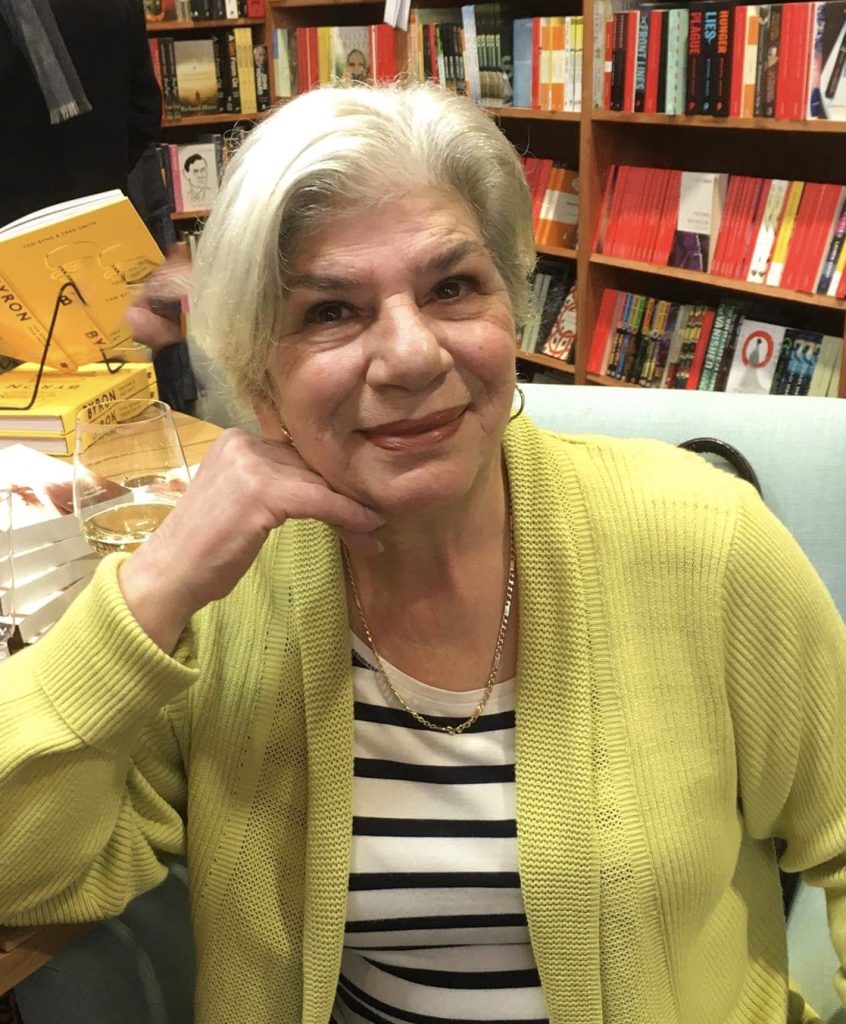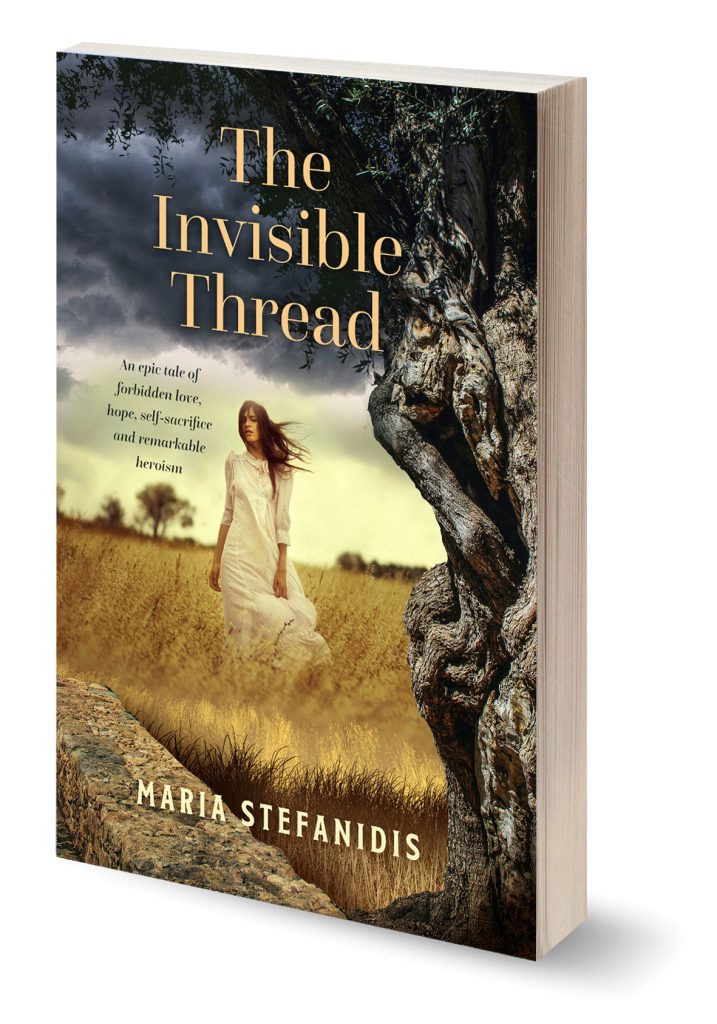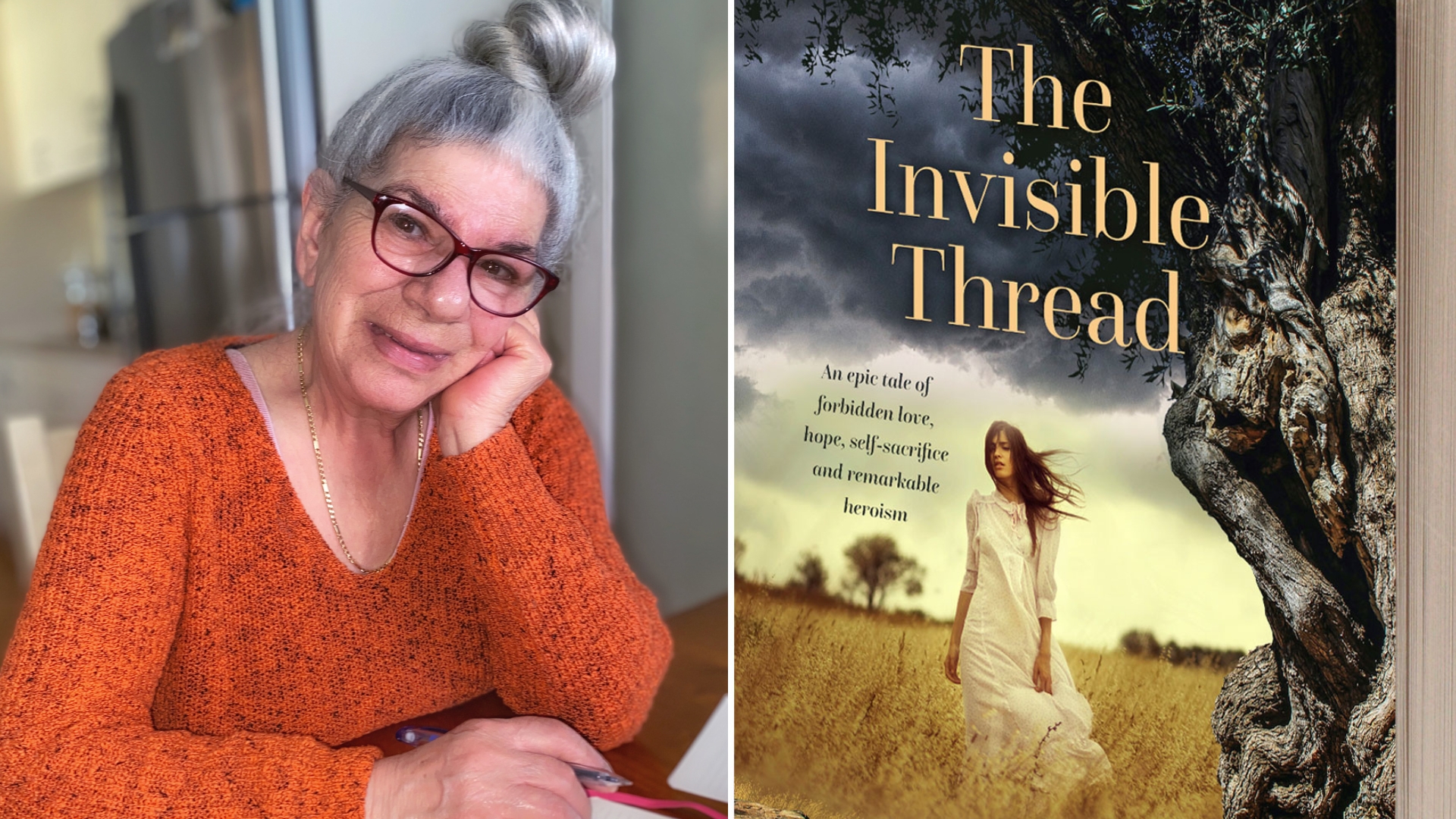After retiring ten years ago from her career as a cosmetologist and hairdresser, Maria Stefanidis decided to focus on a new passion – writing.
In her new book, The Invisible Thread, Maria uses aspects of her own life experience as a Cypriot migrant who moved to Australia in the 1960s. In an interview with The Greek Herald, Maria details her journey to writing the book.
Thank you for speaking with us, Maria. Tell us about yourself:
I live in rural New South Wales with my husband and adorable, blind dog. The unhurried and restful lifestyle allows me to organise my day to fit in with my writing schedule.
It also gives me time to think. I describe myself as a compulsive thinker! I process my thoughts deeply, always trying to find ways of being inventive. I never was academically inclined.
In hindsight, it was partly because it was difficult for me to be raised in Australia in the sixties as a Cypriot immigrant.
It was a time when there was a great influx of migrants, most ended up in Bonegilla, the migrant camp. The Australians thought we’d bombarded their country so it would be easy to understand why they were ill-disposed towards the ‘New Australians,’ as we were called.
Secondly, a Greek girl was supposed to be meek and self-effacing. She was expected to be raised in the same manner as her mother back in her native homeland. However, the average person back home in those days lived in a sightless world where adversity, dogmata beliefs and ancient traditions got in the way of practicality and realism.

As an adolescent I had no choice but to be my own best friend! I had to find ways to amuse myself-even if it be jotting down the number plates of the vehicle’s passing through our street-whilst my parents worked in their milk bar seven days a week.
For a better life, they’d said. In retrospect, after having witnessed first-hand the way in which my relatives in Cyprus could be happy making the most of what little they had, I couldn’t make sense of this ‘better life,’ that my parents were in pursuit of in a foreign country.
Can you detail your journey to writing?
After a long career as a cosmetologist and hairdresser I retired some ten years ago to concentrate on writing. My first historical/fictional novel, The Sunny Side of the Street, was published in 2015.
I managed a diploma from the Australian College of Journalism in 2002. This was after the completion of a course of studies in the theory and practice of writing bestseller novels. It would be a pleasant presumption to think I had the mindset to do so. By no means did I do the course with the belief I’d be taught to write. Nobody can teach you that. One must write with the ink that drops from the heart.
I did the course essentially to learn the knack of plotting, pacing and suspense, and character structure. All of which are important elements to good writing. Prose is really all about freedom, for it enables the author to both explore and conceive without restrictions. For me it’s therapeutic.
I consider myself a descriptive writer who strives to produce powerful and memorable characters, whether likeable or sinister. I want my readers to experience the place, culture and era that I’m writing about so it’s important to keep the story authentic both in dialect and character traits.
How has your Cypriot heritage inspired your writing?
My Cypriot heritage has been an integral part of my writing journey. I’ve remained heavily acquainted with my birthplace Cyprus since holidaying, working and living there throughout the years.

In fact, the inspiration for my new historical/fiction novel The Invisible Thread – about to be released soon – takes place in the heavily Turkish populated village of Rizokarpaso, in the north of Cyprus. It begins in 1940-1964.
It was a time when Greek and Turkish Cypriots lived in discord as neighbours because of the inter-communal conflict between the two ethnic groups. Thus, once again I was obliged to introduce realistic aspects of the Cypriot culture and social behaviour of the characters in the narrative.
I had planned on writing a sequel but after taking a rather long break I decided to write for a much broader audience. As a result, I’ve just finished my new historical/fictional novel The Invisible Thread.
Is there anything else you would like to add?
I was obliged to introduce realistic aspects of the Cypriot culture and social behaviour of the characters in the narrative. Overall, the book is interlaced with multiple twists and turns, unexpected surprises and intriguing characters – both likeable and menacing – and the witty humour is a subtle diversion to the melancholic parts of the narrative that will keep my readers interested.

